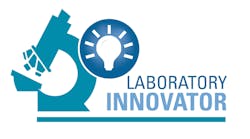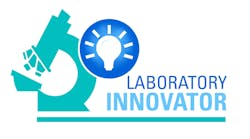Thank you very much. It is truly an honor to have been the recipient of the AACC 2023 CLS Achievement Award, as the plaque has it written. It was awarded at a time of transition to the Association for Diagnostics and Laboratory Medicine (ADLM) and our profession now being recognized as Medical Laboratory Scientists (MLS).
I have “worn many hats” throughout my professional career and have enjoyed and learned from every role I have undertaken. I have worked at the bench, been an educator in laboratory science programs, laboratory director, each one preparing me for my next role.
It is a well-known fact that the role of the clinical laboratories and MLSs is a vital component of medicine, integral to patient care. Afterall, more than 70% of all patient diagnoses are made because of a laboratory test. Yet, there is a lack of awareness that MLSs are responsible for performing the tests and analyzing/reporting the results. As a medical profession, because we work “behind the scenes,” we are hidden or under recognized. Healthcare is experiencing shortages in all professions and the medical laboratory field is no exception, with staffing shortages for a myriad of reasons. And it is getting worse, with the potential to have major implications in the healthcare industry. As MLSs, we need to advocate for our profession and engage in community outreach programs with high school students — introduce them to the role we play, help influence them into learning more about our profession, and that includes the school counselors. We can promote laboratory advocacy by joining professional societies to become a stronger voice in all aspects. We must “cultivate” our workforce.
Through your role as a Joint Commission surveyor, how have you seen Joint Commission–accredited laboratories successfully promoting laboratory visibility in healthcare organizations?
Yes, I have had the opportunity to see laboratories promote visibility in healthcare organizations. I have had the opportunity to survey several small organizations in which members of the C-suite are laboratory professionals; two in which the organization’s administrators were MLSs. I have witnessed laboratory displays in visitor and patient waiting areas and particularly during National Laboratory Professionals Week, many set up displays for other healthcare professionals to view and learn about the laboratory. Others give laboratory tours to other healthcare professionals for them to understand what happens behind those “closed doors” and how vital lab work is to the overall care of the patient; during the tour, they have the opportunity to understand the education and professionalism involved.
In 2021, The Joint Commission and the American Society for Clinical Pathology (ASCP) joined forces to create the Leading Laboratories Program. When laboratories demonstrate to their leaders, providers, and patients a commitment to quality and excellence, the delivery of patient care is improved. This Leading Laboratory designation is awarded to Joint Commission–accredited laboratories and recognizes their leadership and team members who have prioritized high quality and safe patient care in a very effective manner. The laboratory teams are also leaders and mentors and have proven innovative practices.
The first hospital to have achieved this two-year Leading Laboratory designation was Torrance Memorial Medical Center in Torrance, California in September 2022. I had the pleasure of being one of the survey team members in May 2022 during their journey to achieve this designation. Not only were health system’s outcomes, indicators, metrics, and evidence reviewed, but they had to demonstrate excellence in the four key areas of:
- Evaluating quality outcomes
- Supporting professional development
- Cultivating trusted leadership
- Promoting laboratory visibility
The second Leading Laboratory designation was achieved by Lutheran Hospital in Fort Wayne, Indiana in January 2023. Both of these organizations are examples of how a laboratory can elevate the visibility of its team to be recognized for their dedication and commitment to excellence. Perhaps this is just the start of more laboratories’ quests to achieve such designation.
Are there particular ‘lessons learned’ you can share through your experiences as both a Joint Commission laboratory surveyor and a hospital laboratory director?
Always stay positive. Be an advocate for the profession and be a mentor to the new MLSs in the field. Encourage them to ask questions. Do not hesitate to have conversations with them about growth opportunities “beyond the bench.” It does not mean you are telling them to leave the lab, on the other hand, you are opening potential opportunities where our profession can extend in the hospital and with our background be a tremendous asset to the organization. It is an exciting career, play into its strengths. There are leadership opportunities where MLSs can grow into directorship roles and beyond. As a laboratory director, take the lead and discuss investment opportunities in training programs or be willing to serve as a clinical rotation site as the benefit can be tremendous.
As a Joint Commission laboratory surveyor, be a mentor and resource for our new surveyors. With our customers, be collaborative and share best practices observed at other organizations. Promote quality, performance improvement, and patient safety to build a safer health system for all.
You are a long-time member of the ADLM’s Nutrition Division and have authored nutritional articles in regard to caring for patients. Which types of patients should providers be ordering nutritional assessments for and what information does this lab testing provide?
I have been a long-time member of the Nutrition Division and now also of the Critical Point-of-Care Testing Division.
I have advocated for nutritional assessment of hospitalized patients for years. We know nutrients provide the necessary raw materials for the metabolic processes for ultimate cell survival. In the form of a well-balanced diet, these nutrients supply the energy and materials used to support cell growth and development. As such, in a state of optimal nutrition, the body repairs itself and fights disease and infection. At the other end of the spectrum, poor or inappropriate nutrition leads to the body’s quick deterioration with poor outcomes. Malnutrition can be primary, arising in the absence of disease, because of lack of food due to poverty or social isolation. Secondary malnutrition or disease-related malnutrition is a result of decreased dietary intake during illness. It is this combination of reduced intake and increased requirements due to the body’s catabolic state that accelerates the development of malnutrition.
There are reasons why individuals suffering from severe illness or trauma are at high risk of malnutrition, yet there is a lack of awareness and recognition of the problem. Detection of preclinical or subclinical malnutrition has the advantage of identifying and treating the condition early. Fortunately, the incidence of subclinical malnutrition is higher than symptomatic malnutrition, and easier to address. The objectives of an assessment are to identify those patients who will benefit from nutrition therapy, detect and treat the nutritional deficiency, and establish baseline values against to measure the nutrition intervention.
Patients admitted for surgical procedures, trauma patients, patients who have been or are in nursing homes, for example, are prime candidates for an assessment. But all patients should receive a nutritional assessment in order to ensure their nutritional needs are being met, particularly while hospitalized and educated upon discharge. It should be a multidisciplinary team composed of the doctor, nurse, dietician, pharmacist, and the lab.
The laboratory can provide testing parameters to detect the nutritional baselines and continue the testing to monitor improvement or the need for changes in the nutritional intervention. We know timely nutrition support can have positive impacts in patient outcomes and reduce costs. Nutrition is an aspect of patient care that can be enhanced by laboratory involvement allowing the lab the opportunity to be leaders in advancing nutrition to the forefront of patient care and improved outcomes.






